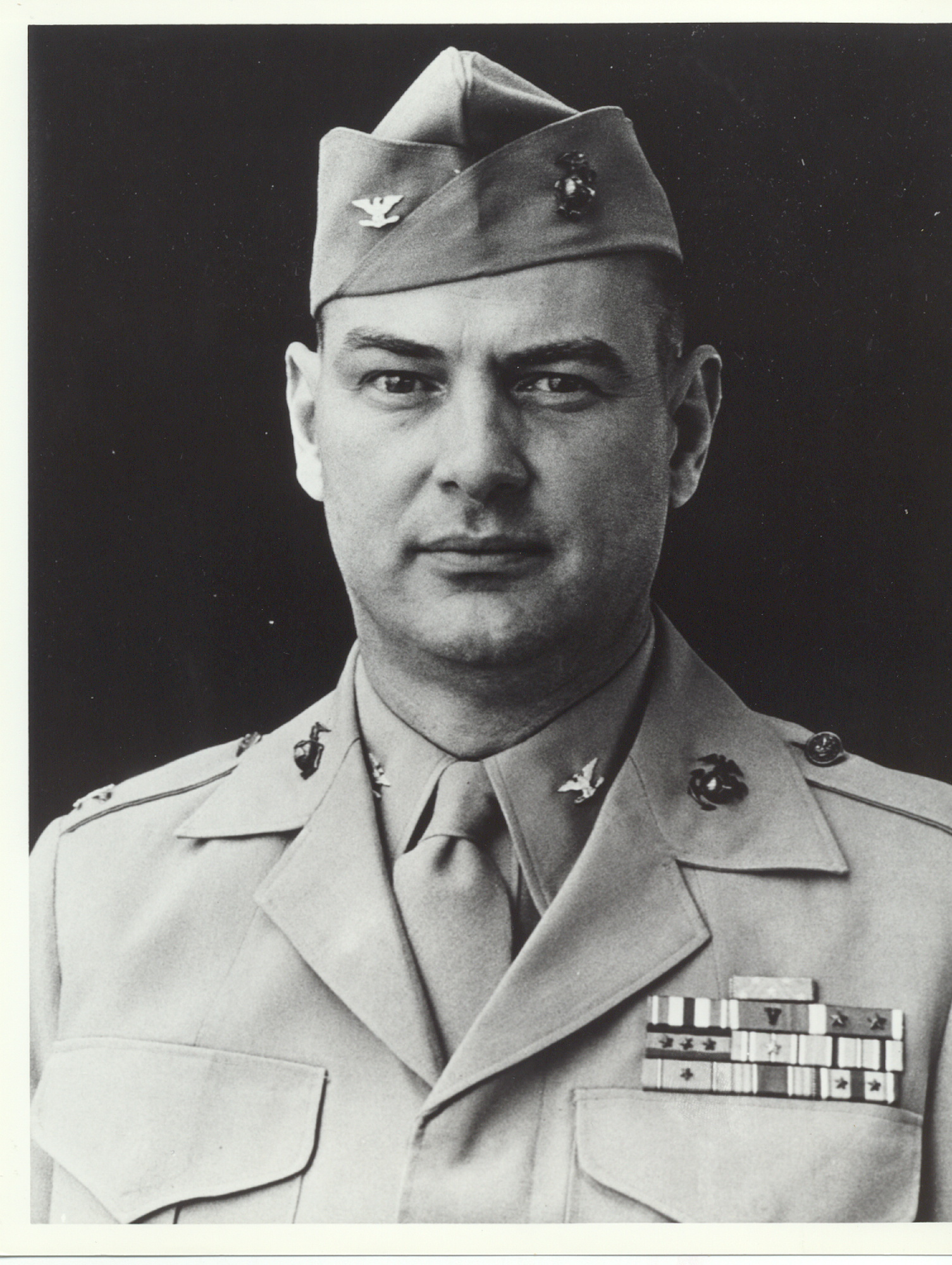
COLONEL
JUSTICE MARION CHAMBERS, USMCR (DECEASED)
Medal of Honor Citation
Colonel Justice Marion Chambers, who received the Medal of Honor for actions during the Iwo Jima campaign, was born 2 February 1908 in Huntington, West Virginia. He went to school there and completed three years at Marshall College in Huntington. He attended George Washington University for two years and National University, both in Washington, D.C., where he obtained his law degree.
Following the completion of two years enlistment in the naval reserve in 1930, he joined the Marine Corps Reserve as a private. He was commissioned in 1932 and continued his studies toward promotion. He was a major, attending summer camp, when Washington's 5th Battalion was called up in 1940. He was well known for the enthusiasm and energy with which he trained his men.
Lieutenant Colonel Chambers received the Silver Star Medal for evacuating the wounded and directing the night defense of a battalion aid station on Tulagi, where he himself was a patient already seriously wounded. He commanded the 3d Battalion, 25th Marines in the Roi-Namur campaign. On Saipan he suffered blast concussion, but returned to lead his command there and on Tinian. He had trained his command so thoroughly and his leadership was so conspicuous that he was awarded the Legion of Merit with Combat "V."
Lieutenant Colonel Chambers commanded the 3d Battalion, 25th Marines in the Iwo Jima landing on 19 February 1945. His sector was beneath high ground from which heavy enemy fire raked the whole landing beach. "Capture of the high ground," the Medal of Honor recommendation stated, "…was essential to the success of the D-Day operations. It is an established fact that had it not been done, it would have constituted a most serious threat to the subsequent operations of the 5th Amphibious Corps."
The 3d Battalion lost more than half its officers and nearly one-half its enlisted strength on D-Day. But by "fearless disregard for his own life" and leading his depleted battalion "by example rather than command," LtCol Chambers won the key heights and anchored the right flank of the Marines' position.
On the fourth day, directing the Marines' first rocket barrage and exposed to the enemy's main line of resistance, LtCol Chambers fell under enemy machine-gun fire. His wounds were so serious that he was medically retired and, because he had been specially commended for performance of duty in combat, he was promoted to colonel.
Presentation of the Medal of Honor was made at the White House by President Harry S. Truman on 1 November 1950. Col Chambers had been recommended for the award on 7 April 1945 following his evacuation, seriously wounded, from Iwo Jima. He had initially received the Navy Cross for his actions, but upon re-examination of the original recommendation with additional evidence, his award was upgraded to the Medal of Honor a few years later.
Colonel Chambers retired from the U.S. Marine Corps Reserve 1 January 1946. After his retirement, he served as staff advisor for the Senate Armed Services Committee. He passed away on 29 July 1982 and was buried in Arlington National Cemetery, Arlington, Virginia.
In addition to the Medal of Honor, Silver Star Medal and Legion of Merit with Combat "V," Col Chambers' decorations and medals include the Purple Heart Medal with two gold stars, Presidential Unit Citation with three bronze stars, Organized Marine Corps Reserve Medal with two stars, American Defense Service Medal, American Campaign Medal, Asiatic-Pacific Campaign Medal with one silver star (denoting five campaigns), and the World War II Victory Medal.
World War II 1941-1945 Medal of Honor